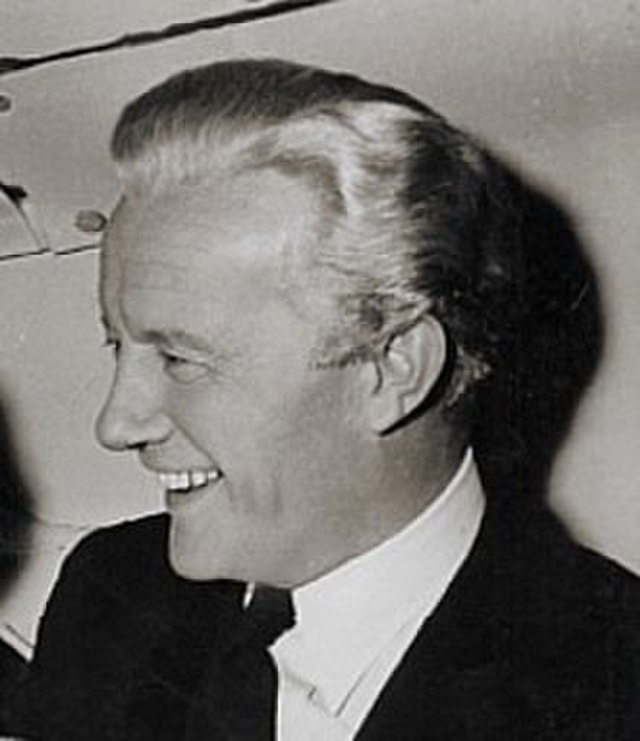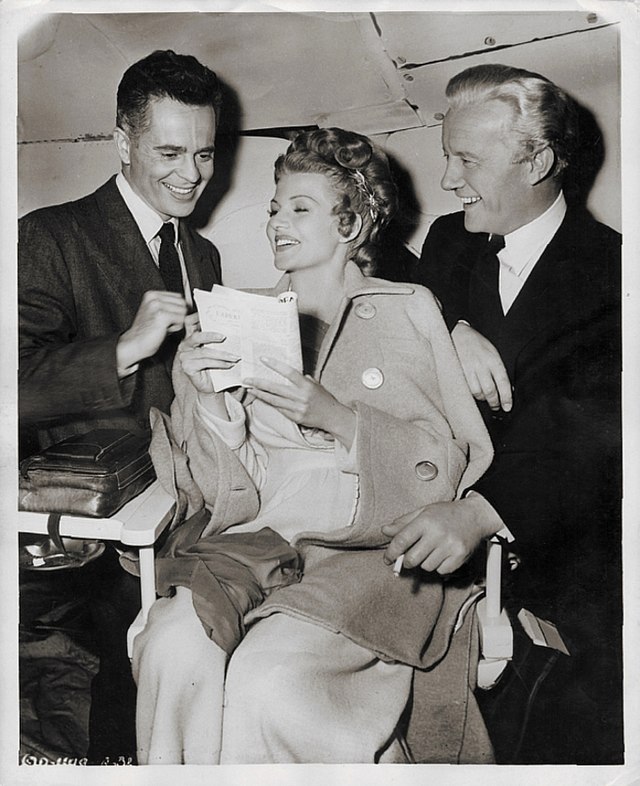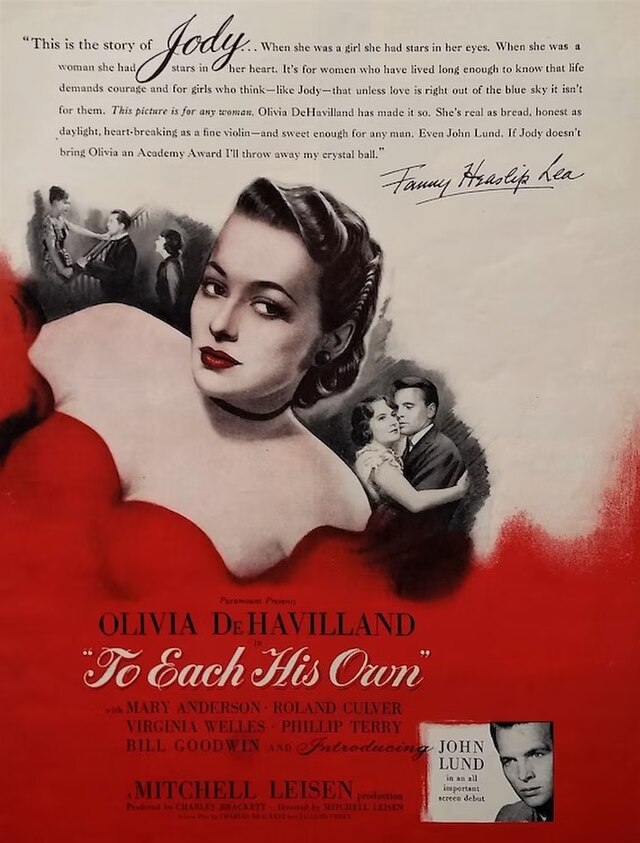Roland Culver (1900 – 1984)
Biography and Movie Career
Roland Joseph Culver was born on August 31, 1900, in Highgate, London, England. He received his early education at Highgate School. In 1918, during the final year of World War I, he joined the Royal Air Force and served as a pilot until 1919. After his military service, Culver explored various career paths before deciding to pursue acting. He enrolled at the Royal Academy of Dramatic Art (RADA), where he honed his craft and prepared for a life on stage and screen.
Culver made his stage debut in 1924 at the Hull Repertory Theatre. His early years in theater were marked by a series of performances that showcased his versatility and depth as an actor. By 1931, he had transitioned into film, quickly establishing himself as a reliable character actor. He became known for his portrayals of impeccable English gentlemen, often embodying roles that required a reserved and dignified demeanor.
Throughout the 1940s and 1950s, Culver's film career flourished. He appeared in notable films such as "The Life and Death of Colonel Blimp" (1943), where he played Col. Betteridge, and "Dead of Night" (1945), portraying Eliot Foley. In "To Each His Own" (1946), he took on the role of Lord Desham, and in "The Emperor Waltz" (1948), he played Baron Holenia. His performances were characterized by a subtlety and sophistication that resonated with audiences and critics alike.
In the 1960s, Culver expanded his repertoire to include television. He appeared in productions such as "Five Finger Exercise" at the Music Box Theatre in New York City in 1960. His portrayal in this play earned him critical acclaim and demonstrated his adaptability across different mediums. In 1966, he was nominated for a Tony Award for Best Performance by a Leading Actor in a Play for his role in "Ivanov." In 1974, he took on the role of the irascible Duke of Omnium and Gatherum in the popular BBC adaptation of "The Pallisers," further cementing his status as a distinguished actor.
Culver was married twice. His first marriage was to actress, director, and casting agent Daphne Rye in 1932. The couple had two children: actor Michael Culver and Robin Culver. Their marriage ended in divorce in 1946. In 1947, he married Nan Hopkins, and they remained together until his death.
Beyond acting, Culver had a passion for writing. He authored the play "A River Breeze," which showcased his literary talents and provided insight into his perspectives on life and art. Additionally, he penned an autobiography titled "Not Quite a Gentleman," offering readers a glimpse into his personal experiences and reflections on his extensive career.
In recognition of his contributions to drama, Culver was awarded an Officer of the Order of the British Empire (OBE) in the 1980 Queen's Birthday Honours. This accolade underscored his significant impact on British theater and film.
Roland Culver passed away from a heart attack on March 1, 1984, in Henley-on-Thames, Oxfordshire, England. His death marked the end of a remarkable career that spanned nearly six decades, during which he left an indelible mark on stage, film, and television. His legacy continues to be remembered and celebrated by those who appreciate the rich history of British performing arts.
Height and Body Features
Roland Culver's physical characteristics contributed to his distinguished on-screen presence. According to his Royal Air Force records dated July 31, 1918, he stood at 5 feet 6 inches (1.68 meters) tall. He had a fresh complexion, hazel eyes, and brown hair.
These features complemented his refined demeanor, enabling him to portray authoritative and gentlemanly roles with authenticity and charm.
Movie "Wanted for Murder" from 1948 with Roland Culver
Analysis of Roland Culver’s Acting Style
Roland Culver was a quintessentially British character actor, known for his sophisticated, polished, and effortlessly authoritative screen presence. His acting style was marked by an air of refinement and intelligence, making him a natural fit for roles that required a calm, composed demeanor with an undercurrent of wit and subtle irony.
Refined and Understated Performances
Culver’s performances were characterized by an understated elegance. Unlike actors who relied on grand, theatrical gestures, he employed a more restrained and nuanced approach, using measured dialogue delivery and subtle facial expressions to convey depth and meaning. His ability to communicate with a mere raised eyebrow, a slight smirk, or a carefully timed pause gave his performances a sharpness that set him apart from more overtly expressive actors.
Master of the English Gentleman Archetype
One of the hallmarks of Culver’s career was his embodiment of the quintessential English gentleman. Whether playing aristocrats, senior officials, military figures, or wise mentors, he exuded an innate sense of class, dignity, and control. His clipped British accent, impeccable diction, and composed body language made him a perfect choice for roles that required a strong sense of propriety and self-assurance.
In films such as The Life and Death of Colonel Blimp (1943), To Each His Own (1946), and The Emperor Waltz (1948), he brought an air of worldly experience, portraying men who were simultaneously authoritative and approachable. His characters often carried themselves with effortless charm, sometimes bordering on the aloof, yet always remaining charismatic.
Wit and Dry Humor
Although Culver was often cast in serious or authoritative roles, he was equally skilled at handling dry humor and light comedy. His comedic timing was impeccable, not in the form of slapstick or broad gestures, but through razor-sharp delivery and an ability to make the most of a single line of dialogue. His characters frequently displayed a wry sense of humor, using sarcasm or witty repartee to convey intelligence and wit.
In films like On Approval (1944) and Folly to Be Wise (1952), his comedic performances were a testament to his ability to find humor in restraint, often playing the straight man to more flamboyant characters while still commanding attention.
Authority Without Aggression
Unlike some of his contemporaries who played commanding figures with bluster and loud proclamations, Culver embodied authority through quiet confidence. He had a way of dominating a scene without raising his voice, using deliberate speech and a steady gaze to convey wisdom, control, and a sense of world-weariness.
This was particularly evident in Thunderball (1965), where he played the British Foreign Secretary. Though he had limited screen time, he made an impression by portraying a calm but firm government official, reinforcing James Bond’s mission with a quiet yet commanding presence.
Emotional Restraint and Subtle Vulnerability
Though Culver was best known for his refined and composed characters, he was also capable of revealing the underlying vulnerability of his roles. Rather than displaying overt emotion, he often conveyed inner turmoil through small shifts in posture, slight hesitations in speech, or a fleeting look of melancholy. This made his performances feel deeply human, even when playing figures of authority or privilege.
Stage Influence in His Screen Work
Having trained at the Royal Academy of Dramatic Art (RADA) and built a strong foundation in theater, Culver brought a stage actor’s precision to film. His voice control, clarity of speech, and ability to project presence without exaggeration reflected a deep understanding of classical performance techniques. His experience in theater also made him adept at adapting to ensemble casts, seamlessly fitting into productions where interactions between characters were crucial.
Legacy and Influence
Culver’s style was one of effortless sophistication, intelligence, and wit. While not a leading man in the conventional sense, his presence was often integral to the films he appeared in. His ability to portray authority figures with warmth, humor, and self-awareness influenced future British character actors, including those who followed in his footsteps in portraying distinguished gentlemen in film and television.
Ultimately, Roland Culver’s acting style was a masterclass in subtlety, control, and nuance. He was the embodiment of British cinematic elegance—never flashy, never forced, but always compelling.
Memorable Movie Quotes from Roland Culver
"Thunderball" (1965):
• As the Foreign Secretary, Culver's character remarks on the urgency of their situation:
"Well, we have exactly 14 hours and 50 minutes—and then I suppose we shall have to pay up and look as happy as we can—shan't we?"
"Dead of Night" (1945):
• In this classic horror anthology, Culver plays Eliot Foley, a jovial host who, upon welcoming his guests, says:
"So glad you could come. The more, the merrier!"
Awards and Recognition
• Officer of the Order of the British Empire (OBE):
n the 1980 Queen's Birthday Honours, Culver was appointed an Officer of the Order of the British Empire for his services to drama.
• Tony Award Nomination:
In 1966, he received a nomination for the Tony Award for Best Performance by a Leading Actor in a Play for his role in "Ivanov."
Notable Movies with Roland Culver
1943
• "The Life and Death of Colonel Blimp": Culver portrays Col. Betteridge in this British war drama that chronicles the life of a British army officer through the Boer War, World War I, and World War II.
1944
• "On Approval": In this romantic comedy, Culver plays Richard Halton. The story follows two wealthy women and their suitors who decide to live together platonically to test their compatibility before marriage.
1945
• "Dead of Night": Culver appears as Eliot Foley in this anthology horror film comprising several supernatural tales, all interconnected by a framing story about guests at a country house.
1946
• "To Each His Own": Culver takes on the role of Lord Desham in this romantic drama about an unwed mother who gives up her child for adoption and later crosses paths with him as an adult.
• "Wanted for Murder": In this British crime film, Culver plays Chief Inspector Conway, investigating a series of strangulations in London.
1948
• "The Emperor Waltz": Culver portrays Baron Holenia in this musical comedy where a phonograph salesman tries to sell his product to the Emperor of Austria, leading to romantic entanglements.
1951
• "The Late Edwina Black": Culver plays Inspector Martin in this British crime drama set in the Victorian era, where a woman's sudden death leads to suspicions of murder.
• "Encore": An anthology film adapting three W. Somerset Maugham stories; Culver appears in "The Ant and the Grasshopper" segment as George Ramsay, a man frustrated by his brother's irresponsible lifestyle.
1952
• "Folly to Be Wise": Culver portrays George Prout in this comedy about an army chaplain who organizes a "brains trust" to entertain the troops, leading to unexpected revelations.
1953
• "Rough Shoot": In this thriller, Culver plays Randall, involving an American colonel in England who becomes entangled in espionage after a shooting accident.
1955
• "The Man Who Loved Redheads": Culver takes on the role of Oscar in this comedy about a man who spends his life searching for the red-haired girl he loved in his youth.
1965
• "Thunderball": Culver appears as the Foreign Secretary in this James Bond film, where Agent 007 investigates the theft of two nuclear warheads by the criminal organization SPECTRE.
1973
• "The MacKintosh Man": Culver plays Judge Mollison in this spy thriller about a British intelligence agent infiltrating a spy ring.
1978
• "The Uncanny": Culver portrays Wilbur Gray in this horror anthology centered around stories involving malevolent cats.
1980
• "Rough Cut": In this crime comedy, Culver plays Maxwell Levy, involving a jewel thief planning a heist while dealing with a double-crossing partner.
1982
• "The Hunchback of Notre Dame": Culver appears as the Archdeacon in this adaptation of Victor Hugo's classic novel about the deformed bell ringer Quasimodo.
List of all the Movies with Roland Culver
1931
• 77 Park Lane
• Fascination
1932
• A Voice Said Goodnight
• Flat No. 9
• Love on Wheels
• C.O.D.
• There Goes the Bride
• Her First Affaire
• Marry Me
1933
• Head of the Family
• Mayfair Girl
• Puppets of Fate
• Her Imaginary Lover
1934
• Lucky Loser
• Two Hearts in Waltz Time
• Nell Gwyn
• Father and Son
• The Scoop
• Borrow a Million
1935
• Oh, What a Night
1936
• Everybody Dance
• Crime Over London
• Accused
1937
• Jump for Glory
• Paradise for Two
1939
• Blind Folly
1940
• French Without Tears
• Dangerous Comment
• Girl in the News
• Night Train to Munich
1941
• Old Bill and Son
• Fingers
• Quiet Wedding
• This England
1942
• One of Our Aircraft Is Missing
• The Day Will Dawn
• Unpublished Story
• The First of the Few
• Secret Mission
• Talk About Jacqueline
1943
• The Life and Death of Colonel Blimp
• Dear Octopus
1944
• On Approval
• English Without Tears
• Give Us the Moon
1945
• Dead of Night
• Perfect Strangers
1946
• To Each His Own
• Wanted for Murder
1947
• Singapore
• Down to Earth
1948
• The Emperor Waltz
• Isn't It Romantic?
1949
• The Great Lover
1950
• Trio
1951
• The Late Edwina Black
• Hotel Sahara
• Encore
• The Magic Box
1952
• The Hour of 13
• Folly to Be Wise
1953
• The Holly and the Ivy
• Rough Shoot
1954
• Betrayed
• The Teckman Mystery
1955
• Dangerous Comment
• The Man Who Loved Redheads
• The Ship That Died of Shame
• Touch and Go
• An Alligator Named Daisy
1956
• Safari
1957
• The Hypnotist
• Light Fingers
• The Vicious Circle
• The Truth About Women
1958
• Bonjour Tristesse
• Next to No Time
• Rockets Galore!
1962
• A Pair of Briefs
• Term of Trial
• The Iron Maiden
1964
• The Yellow Rolls-Royce
1965
• Thunderball
1966
• A Man Could Get Killed
1968
• The Jokers
• Only When I Larf
1969
• The Battle of Britain
1970
• The Executioner
1971
• Nicholas and Alexandra
1973
• The MacKintosh Man
1974
• Ransom
1975
• A Matter of Time
1978
• The Uncanny
1980
• Rough Cut
1982
• The Hunchback of Notre Dame



